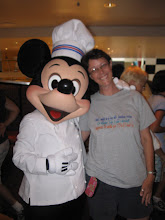For me, the hardest part of this book was my inability to piece things together with some form of organization. I find it difficult to quote passages because I’m unsure of how they actually fit together to prove whatever point it is that I am trying to make. The story is such a jumble of thoughts and facts and nonsensical meanderings that I found it difficult to make much sense of it. It is obviously the story of conflicting cultures and differing ways of life. I also see it as a struggle between acceptance and non acceptance, change and non change. I get angry at the thought of Whites being portrayed in such brutish manners, with no real culture of their own and in staunch opposition to the idea of any other culture being real, or good enough to belong in our society. I, for one, do not agree. I love the exploration of other cultures and to me, it helps to clarify my own history and adds color and depth to my traditions. It makes me open my mind to historical/religious possibilities other than those I grew up learning and believing.
Oh.
Wait a minute.
Therein lies the problem, don’t you think? Maybe I am one of a minority of people who believes that there is more than one way to view history, and that perhaps my way is only part of the big picture. Maybe my willingness to be open-minded and eager to learn is the very thing that the Wallflower Order seeks to stop. If one culture makes the claim that perhaps their way isn’t the only way, don’t they risk losing their traditions and diluting their beliefs? Maybe- but I choose to believe that the beliefs of others can only add depth and color to our understanding of our own.
So, off the soap-box and on to the next point. What in the world is Jes Grew? I thought it was the culture of the African American and that the ‘plague’ was the spread and growth of that culture. Suddenly people were standing up and saying, “Hey! I count! My view and my traditions and my history counts!” So why try to squelch that? Because if you are a member of the Wallflower Order, you can see your own history being brought into question because it varies from the history of another culture. The culture that you have tried so hard to cultivate may have to step back and admit that maybe it’s just one fish in a pond full of other fish.
I loved what one of my classmates said on our board. I’ll quote her here:
“Ah, so I guess that Jes Grew is the anti-plague to the suppression and conformity of blacks living in white America - losing touch with their roots and mother culture? The cure is to reclaim and celebrate their heritage. The real disease is having no identity” (CG).
I found those words profound. Isn’t that what is happening? Not just within the Black Culture, but within so many different cultures- they are losing their very identity and heritage, it is being watered down by the American culture- or non-culture- however you choose to see it. America, being a relatively young country, has no long standing traditions; we have had to make new ones: fireworks on the Fourth of July, Patriots Day (for those of us in New England), even our beloved Thanksgiving is a part of our new culture. Look at what has recently been added: We now celebrate Martin Luther King Jr’s birthday, and Kwanzaa has been added to our calendars. These are important steps toward acceptance of other cultures as well as those cultures embracing their own histories and traditions. Does that make sense?
Anyway- I’ll be honest and say that I am glad this book is behind me. It was a challenge from the beginning. I am sure Reed said what he needed to, but I wish he’d said it in a way that was a bit easier for me to grasp. I am still not sure that he got through to me the point he was trying to make.
Or perhaps he did.
Honeymoon Part 3: Return From The Dead
12 years ago

No comments:
Post a Comment